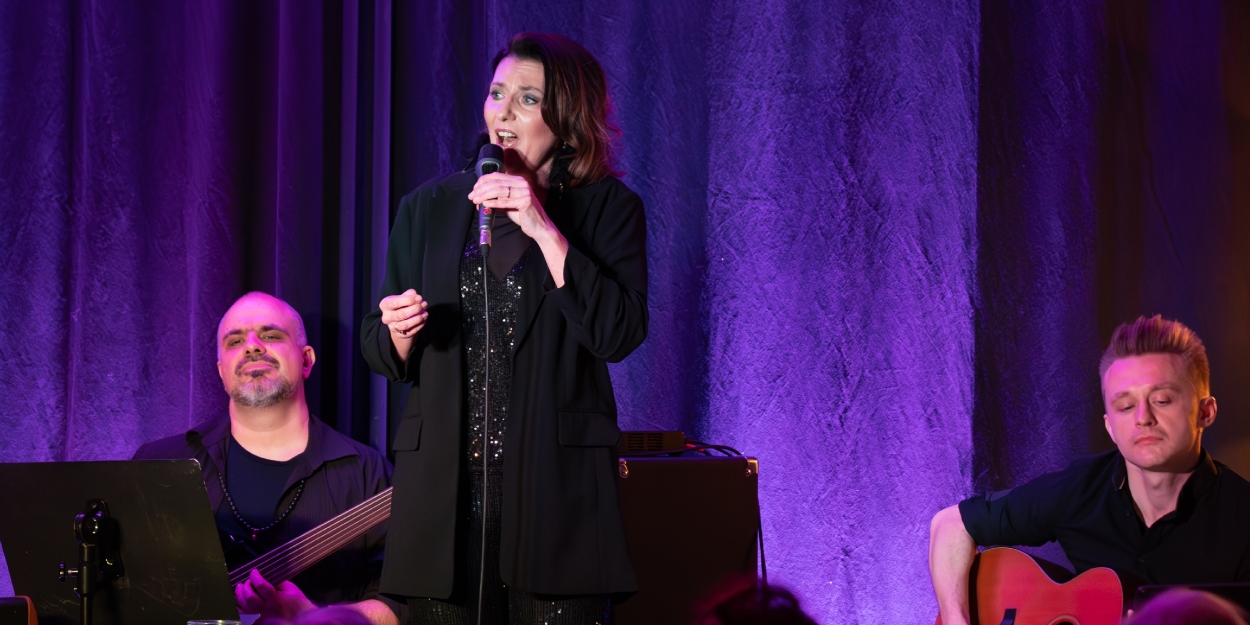Review: Monika Chrząstowska Pays Homage To Wiera Gran at the Polish Consulate
The Festival of Jewish Culture in Warsaw remembers the interwar entertainer’s life in all its triumphs and tragedies

The Singer Warsaw Festival of Jewish Culture, organized by the Shalom Foundation, returned to New York City in November for a third year of programming. One of their shows, graciously hosted by the Consulate General of the Republic of Poland, was a tribute to the music of Wiera Gran, a Polish-Jewish singer who began her career in the 30s. Monika Chrząstowska, a star of Warsaw’s Jewish theater, performed a cabaret of Gran’s work, paying homage to the celebrated yet complex entertainer.
Wiera Gran (born Dwojra Grynberg) began her career in the 1930s at a young age - by the end of the decade, she was famous throughout Poland. She was known for her low contralto voice, which she lent to many tangoes, a popular genre at the time. Following the invasion, the Nazi government forced several hundred thousand Jews, including Gran, to live in the Warsaw ghetto. Amidst the atrocities, Gran continued performing, usually at the Café Sztuka (“sztuka” meaning “art”), before smuggling herself out in 1942. After the war, she was cleared of accusations of collaboration, but she was consistently hounded by rumors to the contrary, that, however unfounded, deeply affected her. She continued to sing, living in Paris for a time and singing at the Alhambra theater, but she was never the same. Monika Chrząstowska tackles the task of embodying such a complex figure with gusto, shifting between high energy decadent glee and a slower, sadder tone. She performs many of the upbeat tangoes that made Gran famous, but mixes in some of her more downtempo work as well. Overall, it made for a moving performing, one of joy and sorrow.
One of the more notable inclusions in the setlist is "Libe Mameiu Nyszt Wejn." Gran recorded and performed the vast majority of her work in Polish, but sang this song in Yiddish for the film On a Heym (Without a Home), often called the last Yiddish language film made in Poland before World War 2. Chrząstowska gives a weighty performance of the tune, chosen to symbolize that period of Gran’s life. It’s a somber moment, with Chrząstowska’s voice building to crescendo and then crashing back down into a quiet pain, as if reminiscing on better times. The instrumentation is stripped back, with only a piano accompaniment, provided by Franciszek Wajdzik on the keys. The song is about the character’s mother, and her inability to return home. A fitting tune for Gran, who spoke of feeling deprived of a home after the war.
By contrast, "Fernando," one of Gran’s more well-known songs, was a high point of the evening. Chrząstowska leaves the stage for a moment, and then literally runs in from across the room to start singing after the instrumental lead-in. She comes alive, painting a picture with her voice of the promise and allure of the interwar era. It’s a bit of a sultry number, and Monika takes to it with a wicked glee. Bassist Bartozzi Wojciechowski, playing an electric five-string (an inspired bit of instrumental choice), takes an excellent solo during the number as well.
To Niewiele is a number where Monika showcases her passionate delivery, belting and holding notes over legato notes from violinist Robert Seniuta. Another tune, "Piosenka o Zagubionym Sercu," is a proper tango from Monika and the trio. In a hallmark of the style, there’s a violin-led major hit on the 4 beat in between the lyrics. It’s quite a pleasant number. Chrząstowska’s delivery gets quite breathy at times, such as on the opening number, Gdy Odejdziesz, which introduces that archetypical interwar femininity. Once again, there is this sense of excavating a world and period that’s been lost. Or rather, stolen.
The central theme of the show is the simultaneous celebration and mourning of Polish Jewish culture. There is a sense of longing for what could’ve been, of what was lost to the Nazi genocide of Polish Jewry. And yet, there is also a sense of celebration of what still is. In the face of unspeakable loss (roughly 90% of Polish Jews, around 3 million people, were killed between 1939 and 1945), Jewish culture lived on. In Warsaw, Gran’s home city, the Singer Warsaw Festival of Jewish Culture has been running for over twenty years, putting on hundreds of events since its inception. Jewish theater, music, art and culture still exist. That alone is worth celebrating. Gran herself seems to embody this dichotomy - she survived the war, but it broke something in her and she was never the same. The war stole her home, her family, her friends. Everything but her voice. And so she kept singing.
Reader Reviews
Videos

